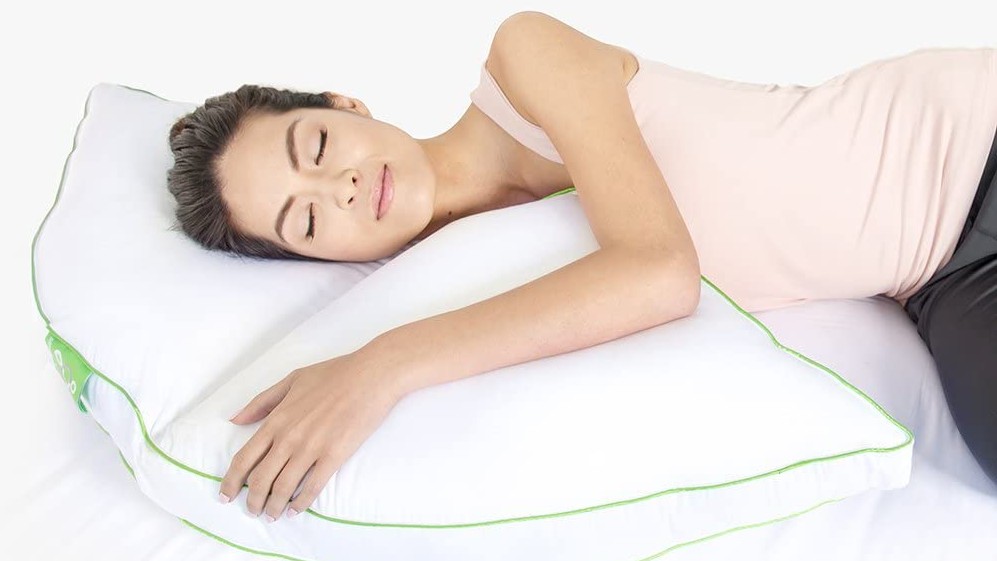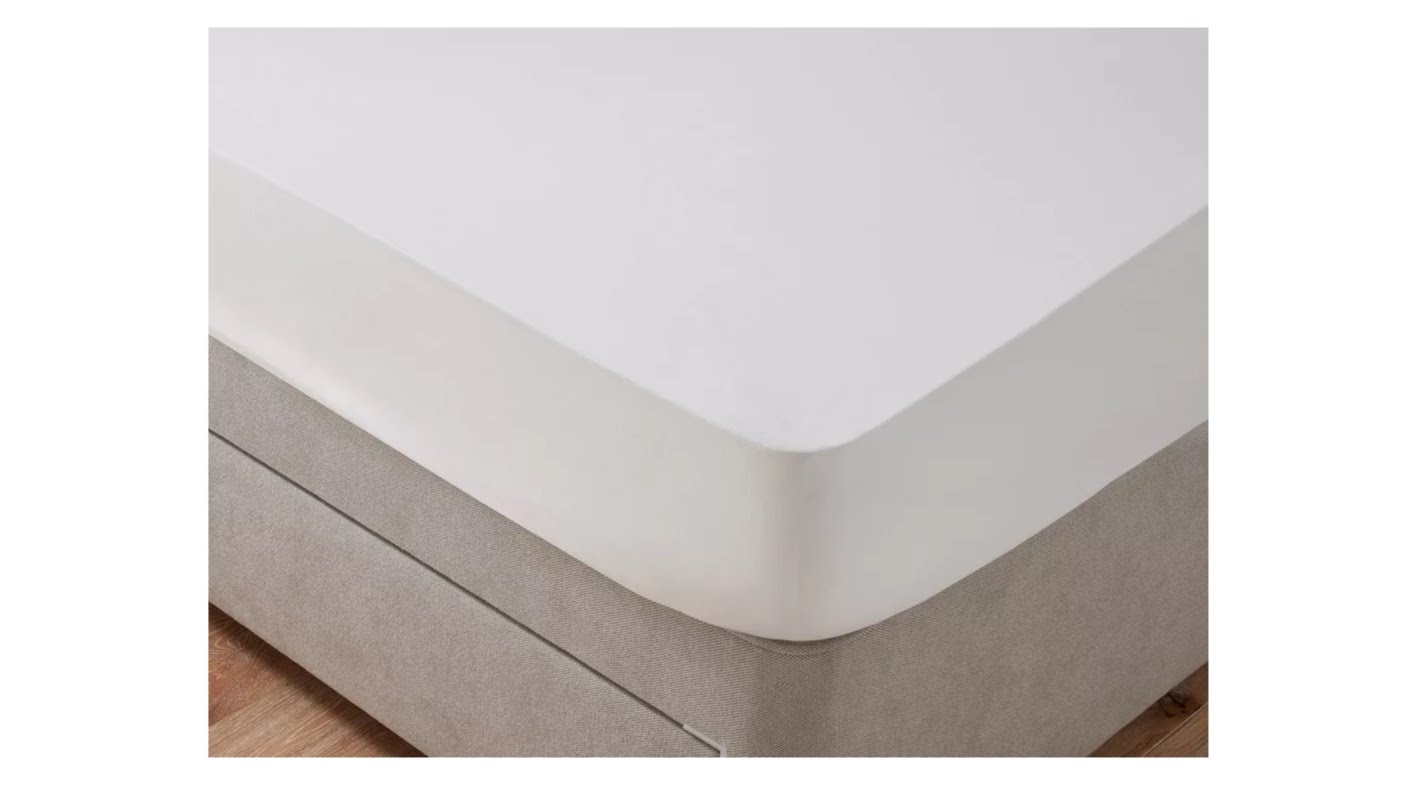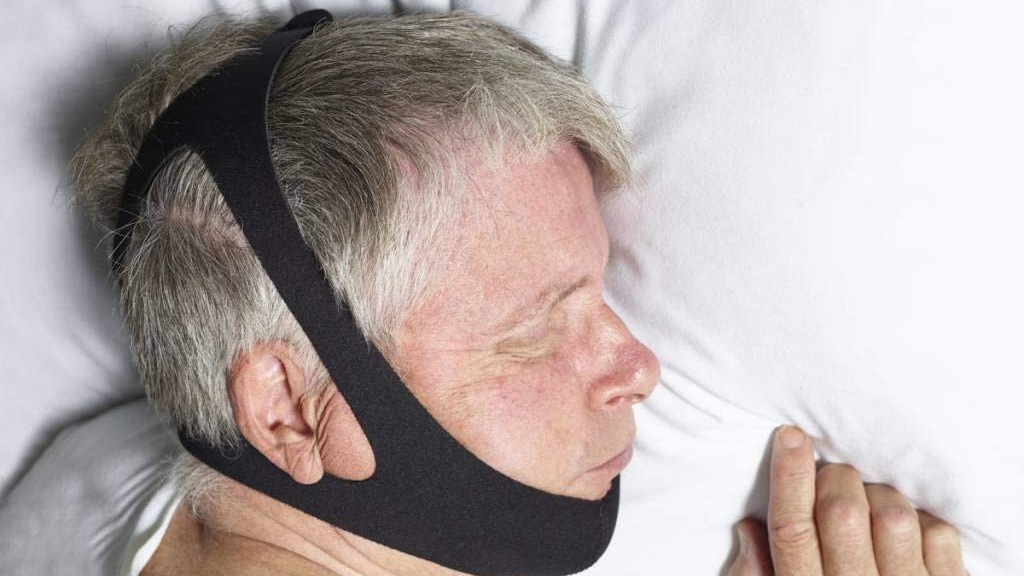How to stop snoring: 5 techniques to try tonight
Keeping everyone up? Here's how to stop snoring and restore nocturnal harmony

It may be the butt of jokes, but persistent snoring can be a serious issue, and not just for the person sharing a bed with you. If you're struggling with how to stop snoring, read on for some top techniques to try. Even if you sleep alone, it’s important to address the problem, because it can reduce the quality and quantity of your sleep, leading to tiredness, irritability, poor focus and decreased libido. The good news is that there are often easy ways to prevent snoring, and ultimately, medical treatments if those don’t work.
Snoring occurs when air is unable to move properly through your nose and throat, making the surrounding tissue vibrate in a noisy manner. There are many different causes of snoring, though, which means there are many potential solutions. Read on as we walk you through the main ways to tackle the problem.
- Best mattress guide: Upgrade your sleep setup
- ... add one of the best duvets
- ... and the best pillows
1. Make changes to your lifestyle

You're more likely to snore if you are overweight, unfit, a smoker, or someone who drinks too much alcohol. So if any of these apply to you, the first thing you need to do is make changes to your lifestyle.
Being overweight and unfit leads to excess fatty tissue around your neck or throat, which can be a major contributor to snoring. So heading to the gym to lose weight and tone up may be all you need to do to end your snoring habit. Alcohol, meanwhile, relaxes the throat and tongue muscles, which narrows the airways. So cutting down on the booze can really make a difference to snoring too.
So will quitting smoking, because cigarette smoke irritates the lining of the nasal cavity and throat, causing swelling and catarrh, which again causes snoring. Vaping is generally a much better option, although it's not a perfect solution, as habitual vapers still suffer overnight nicotine withdrawal, which is believed to reduce the quality of your sleep in general.
2. Change your sleeping position

The Sleep Yoga Side Sleeper Pillow is a chiropractor-designed pillow that forces you to sleep on your side
During the First World War, soldiers were ordered to wear their rucksacks while they slept, to stop them snoring and giving away their position to the enemy. That's because sleeping on your side means you're much less likely to snore than when you're on your back.
There are, of course, easier ways to stay sleeping on your side through the night. For instance, you could sew a sock into the back of your pyjama top or T-shirt, and put a tennis ball inside it. You could use a specially made pillow, such as the Sleep Yoga Side Sleeper Pillow. Or you can even buy an actual pillow in a backpack.
Get all the latest news, reviews, deals and buying guides on gorgeous tech, home and active products from the T3 experts
3. Create a safe sleeping environment

A mattress protector like this one from Tempur can help rid your room of allergens
A swollen nose or throat due to allergies is another common cause of snoring. So it’s important to ensure your bedroom is as clean and free from allergens as possible.
It’s not enough just to vacuum the carpet and wipe down surfaces. Your bed is also a magnet for dirt, dust mites and other infestations, so regularly cleaning your mattress, protectors, pillows and duvet is a must. And if your mattress is more than seven years old, you should just replace it (see 'How often should you change your mattress' for more info).
Also keep your bedroom well ventilated, and leave your duvet turned back during the day, to lower your bed's humidity. When buying bedding, look for hypoallergenic products, such as The Simba Hybrid Duvet. And consider adding an extra layer of protection against infestation by using a mattress protector.
4. Manipulate your airways

Devices like this Stop Snoring Chin Strap by SleepPro can help keep your airways open at night
As snoring is caused by restricted airways, the most direct approach is to find ways to physically open those airways wider. Some people find that taking a hot shower before bed helps to open up the nasal passages. Another method is rinsing your nostrils out with a salt-water solution: to do this safely, follow these NHS guidelines. Alternatively, if a nasal blockage is caused by allergies, there are many nasal decongestant sprays available at the pharmacy that can be effective.
Beyond that, there are countless anti-snoring devices you can buy that manipulate parts of your face to help you breathe more easily as you sleep. Which one you should choose depends on what's causing your snoring. (If you don’t know, you might need someone else to observe you asleep, and work out what’s going on).
If you snore because your tongue is partially blocking the back of your throat, you’ll want a mandibular advancement device, which you wear in your mouth to bring your tongue forward. Meanwhile, if your mouth falls open when you're asleep, you’ll want a chin strap to hold it closed, or alternatively a vestibular shield, which stops you breathing through your mouth and forces you to breath through your nose.
Finally, if your snoring is caused by a blocked nose, you can use nasal dilators, aka nasal strips, which hold your nose open while you sleep. Check out our pick of the best anti-snoring devices for more details.
5. Visit your GP

If lifestyle changes don't help, your doctor will be happy to help investigate further
If you’ve tried all these approaches and your snoring remains a problem, then it’s time to visit your GP. They’ll check inside your mouth and nose for any obvious issues. It can help to come with your partner so they can describe what your snoring is like. You may be referred to a specialist for treatment for further tests, and ultimately there are surgical options, although be aware that these are not widely available on the NHS.

Tom May is a freelance writer and author of the book, Great Ted Talks: Creativity. He has been editor of Professional Photography magazine, associate editor at Creative Bloq, and deputy editor at net magazine. He has also worked for a wide range of mainstream titles including Radio Times, NME, Heat, Company and Bella.
